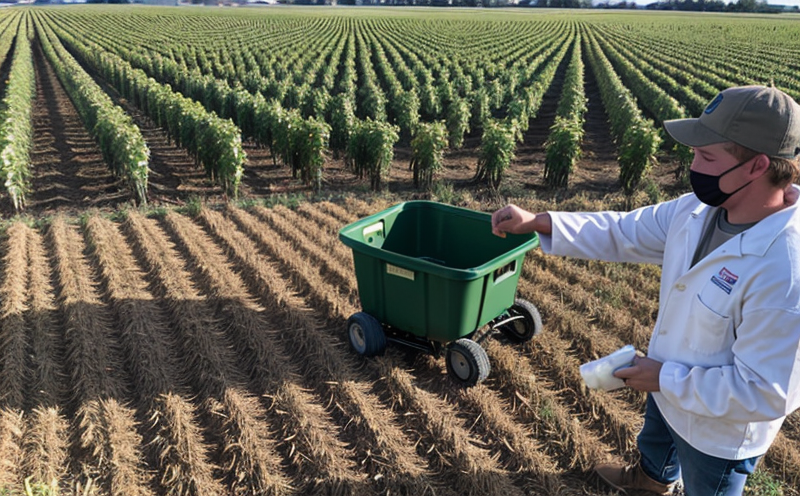Dockage and Impurity Testing in Grains
In agriculture and forestry testing, dockage and impurity testing in grains is a critical process that ensures product quality meets both internal standards and external regulations. Dockage refers to the non-grain components such as weed seeds, hulls, and other foreign materials within the grain sample. Impurities can include dirt, stones, and any other extraneous substances that could affect the grain’s purity.
The primary goal of dockage and impurity testing is to quantify these undesirable elements accurately. This ensures that the grains are fit for consumption or further processing without compromising quality or safety standards. The testing process is typically conducted using advanced analytical instruments, such as near-infrared spectrometers (NIR) and automated grain sorting machines.
The testing procedure involves several steps: sample preparation, initial drying, sieving to separate large impurities, and then precise weighing of the remaining dockage. This meticulous process ensures that the results are reliable and reproducible. Compliance with international standards like ISO 3689:2017 for grain analysis is crucial for ensuring consistency in testing methods.
The importance of this service cannot be overstated, especially for quality managers and compliance officers who need to ensure product integrity. Dockage and impurity levels can significantly impact the market value and shelf life of grains. For instance, high dockage levels may lead to increased moisture content, which can promote mold growth and spoilage.
Understanding the composition of your grain sample is essential for making informed decisions about storage conditions, processing methods, and potential uses in different markets. By accurately identifying impurities and dockage, you can optimize your supply chain processes and enhance customer satisfaction.
The implications go beyond just quality; they also affect food safety and regulatory compliance. For R&D engineers, this service provides valuable data for product development and improvement efforts. In procurement, accurate testing results help in selecting reliable suppliers who adhere to the highest standards of purity and cleanliness.
Benefits
- Achieve consistency in grain quality by reducing dockage and impurity levels.
- Increase market value through adherence to stringent quality control measures.
- Ensure compliance with international standards, thereby avoiding legal issues.
- Promote food safety by eliminating potential contaminants from the supply chain.
- Optimize processing efficiency and reduce waste in your production lines.
- Evaluate raw material quality before processing to improve end-product consistency.
Eurolab Advantages
At Eurolab, we offer unparalleled expertise in dockage and impurity testing, ensuring that your grains meet the highest quality standards. Our state-of-the-art facilities are equipped with industry-leading equipment, allowing for precise and reliable results.
We employ highly skilled professionals who are well-versed in international standards such as ISO 3689:2017. This ensures consistency and accuracy in our testing processes. Our dedicated team works closely with you to understand your specific requirements and deliver tailored solutions that meet your business needs.
With Eurolab, you can expect top-notch service, from sample preparation through final analysis. Our commitment to excellence extends beyond just the technical aspects; we also provide comprehensive reporting and detailed insights into your grain composition. This information is invaluable for making informed decisions about storage, processing, and distribution.
Our competitive edge lies in our ability to offer rapid turnaround times without compromising on accuracy or precision. We understand that time is of the essence in today’s fast-paced market environment, which is why we strive to deliver results quickly while maintaining the highest standards of quality.
Competitive Advantage and Market Impact
By leveraging Eurolab’s dockage and impurity testing services, you can gain a significant competitive advantage in the market. Our comprehensive testing ensures that your grains are of superior quality, which enhances their appeal to consumers and buyers alike.
In an increasingly regulated environment, compliance with international standards is crucial. By adhering to these stringent regulations, you not only avoid potential legal issues but also build a reputation for reliability and trustworthiness. This can lead to stronger relationships with suppliers and customers, ultimately boosting your market position.
The insights gained from our testing services can help you optimize your supply chain processes. By identifying areas where improvements are needed, you can streamline operations, reduce costs, and improve efficiency. These efficiencies translate directly into increased profitability for your business.





